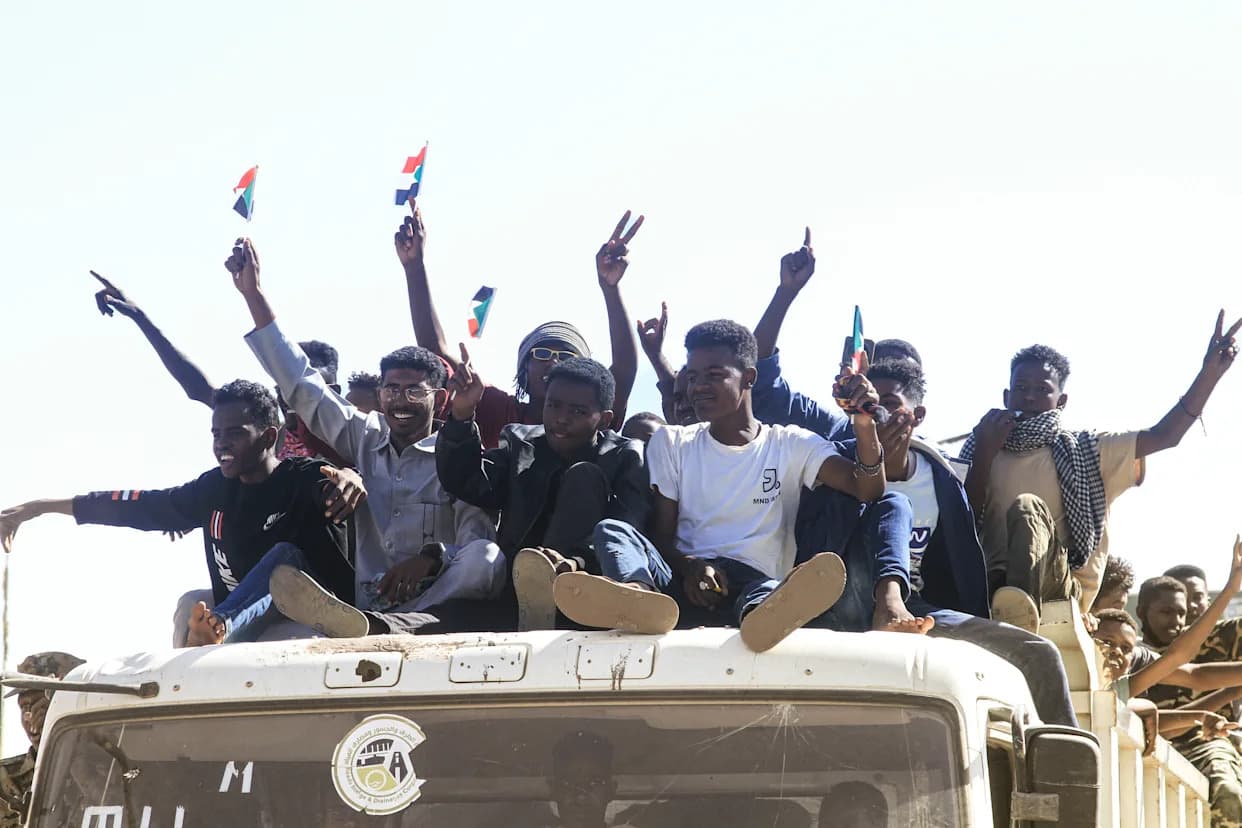Sudan's civil war, which began in April 2023, is increasingly driven by foreign competition for gold, agricultural land and strategic Red Sea access. The army and the RSF are backed by different regional patrons, and supply routes through Chad and eastern Libya have reportedly sustained fighting. Gold revenues, agricultural investments and drone deliveries have reshaped the battlefield and risk prolonging a severe humanitarian crisis.
Scramble for Gold, Land and Ports Fuels Sudan’s Brutal Civil War

Sudan's civil war, now in its third year, is driven in large part by a scramble for the country's natural wealth — gold, fertile farmland and strategic Red Sea access. The conflict, which began in April 2023 between the Sudanese regular army and the paramilitary Rapid Support Forces (RSF), has intensified in recent months after the RSF seized El-Fasher in Darfur.
Foreign patrons and denials
Regional analysts say the army has received political and material backing from Egypt, Saudi Arabia, Iran and Turkey, while the RSF has leaned on support tied to the United Arab Emirates (UAE). Official statements from involved states typically deny direct intervention, even as the fighting has killed tens of thousands, displaced nearly 12 million people and produced one of the world's most severe humanitarian crises.
Fertile land and a strategic trade corridor
Vast tracts of Sudan's fertile land have attracted major interest from Gulf countries that view the country as a potential agricultural breadbasket. Before the war, Emirati investors acquired tens of thousands of hectares and accounted for a substantial share of Sudan's agricultural exports to the UAE; Saudi Arabia and Qatar also pursued large agricultural deals prior to the 2019 political transition.
Sudan's Red Sea coastline adds a geopolitical dimension: control of ports and coastal access could influence shipping lanes linking the Mediterranean and the Indian Ocean. Analysts estimate roughly 10–12% of global seaborne trade transits corridors connected to the Red Sea, making port access a coveted strategic asset. Russia and Turkey have both sought port concessions or naval footholds in the past, though those negotiations have largely stalled.
Supply routes and alleged logistics networks
Khartoum's army severed ties with the UAE soon after the fighting began, accusing Abu Dhabi of siding with the RSF and of facilitating arms and mercenary flows — allegations the UAE denies. Investigations and UN reporting have highlighted logistical hubs and flight routes that appear to have supported RSF resupply efforts early in the conflict.
Early in the war, Amdjarass airport in eastern Chad was identified as a transit point for cargo flights into RSF-held areas of Darfur. More recently, eastern Libya — dominated by commander Khalifa Haftar's administration and long linked to UAE patronage — is reported by analysts to have become a significant conduit for materiel into Sudan. Researchers have documented hundreds of military cargo flights to eastern Libya since June, which watchdogs suggest may have helped sustain RSF operations across Darfur.
Gold: a lucrative war economy
After the 2011 secession of South Sudan, which took much of the region's oil, gold rose to prominence in Sudan's economy. Before the current conflict, Sudan produced just over 80 tonnes of gold annually and exported roughly $2.85 billion worth in 2021. Since the fighting began, official production fell sharply while artisanal mining and illicit trafficking expanded.
Research from think tanks indicates that competition over gold mining and trade has been a major driver of the conflict, with revenues used to pay fighters and buy weapons. Much of the gold mined in Sudan or transiting through neighboring states has been reported to end up in global trading hubs, with observers noting a substantial uptick in imports from Sudan in 2024 to markets in the Gulf.
Drones, foreign fighters and battlefield dynamics
Iran and Turkey have supplied long-range drones to the Sudanese army, capabilities that analysts say helped government forces retake Khartoum in March. The RSF has worked to bolster air defenses, blunting drone effectiveness in later operations. Both sides have accused each other of receiving drone and aerial systems from foreign patrons; such accusations remain contested.
The RSF has also recruited foreign mercenaries from a range of countries, according to regional security analysts. Contractors and fighters from Russia, Syria, Colombia and several Sahel states have been reported among those hired, adding another transnational dimension to the conflict.
Consequences and outlook
The convergence of foreign strategic interests, lucrative mineral revenues and local power struggles has created strong economic incentives for the conflict to persist. Analysts warn that until supply lines, illicit trade networks and external patronage are addressed, the humanitarian catastrophe in Sudan is likely to continue. Accountability, tighter controls on armaments and efforts to disrupt illicit resource flows are widely seen as essential steps toward de-escalation.
Help us improve.


































